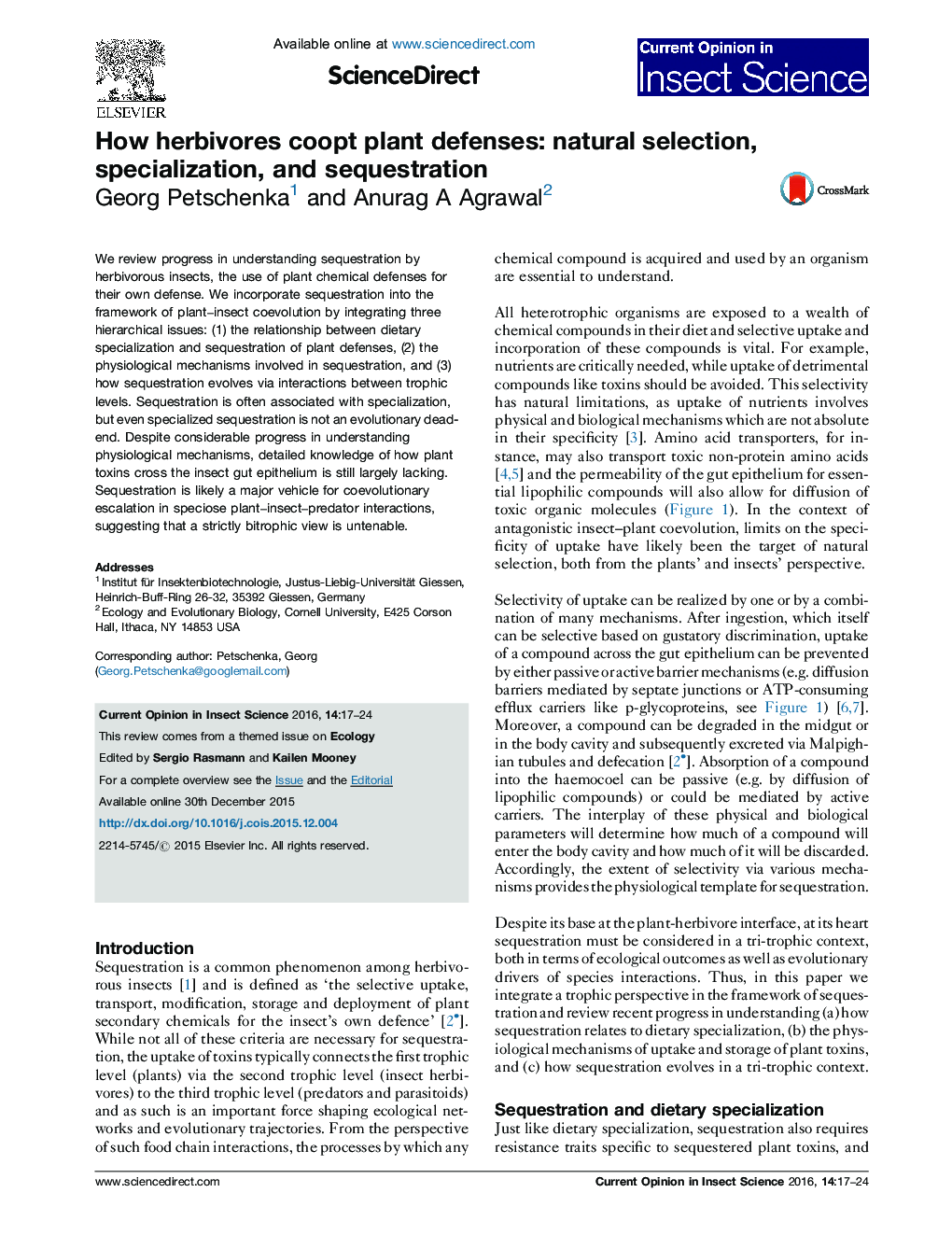| Article ID | Journal | Published Year | Pages | File Type |
|---|---|---|---|---|
| 4508173 | Current Opinion in Insect Science | 2016 | 8 Pages |
•We review sequestration of plant toxins in the context of ecology and evolution.•Sequestration parallels dietary specialization but is not an evolutionary dead-end.•Sequestration requires resistance different from that for dietary tolerance.•ABC transporters and CYP450s are involved in the process of sequestration.•Transport of toxins from the gut into the haemocoel is still poorly understood.
We review progress in understanding sequestration by herbivorous insects, the use of plant chemical defenses for their own defense. We incorporate sequestration into the framework of plant–insect coevolution by integrating three hierarchical issues: (1) the relationship between dietary specialization and sequestration of plant defenses, (2) the physiological mechanisms involved in sequestration, and (3) how sequestration evolves via interactions between trophic levels. Sequestration is often associated with specialization, but even specialized sequestration is not an evolutionary dead-end. Despite considerable progress in understanding physiological mechanisms, detailed knowledge of how plant toxins cross the insect gut epithelium is still largely lacking. Sequestration is likely a major vehicle for coevolutionary escalation in speciose plant–insect–predator interactions, suggesting that a strictly bitrophic view is untenable.
